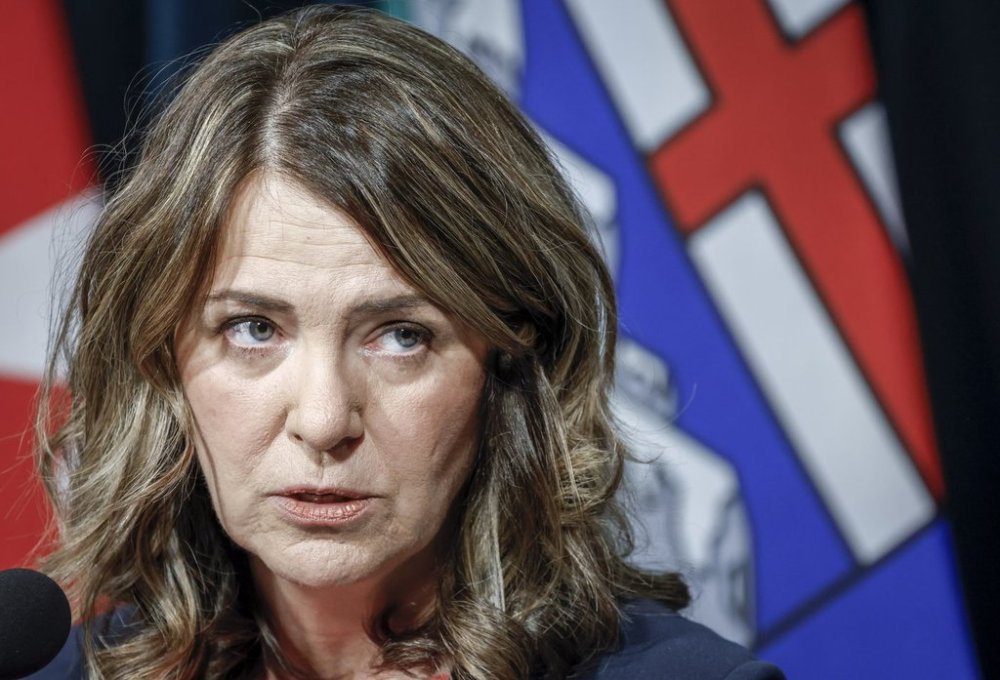Alberta teachers weigh legal options as back-to-work legislation looms in strike
Advertisement
Read this article for free:
or
Already have an account? Log in here »
To continue reading, please subscribe:
Monthly Digital Subscription
$1 per week for 24 weeks*
- Enjoy unlimited reading on winnipegfreepress.com
- Read the E-Edition, our digital replica newspaper
- Access News Break, our award-winning app
- Play interactive puzzles
*Billed as $4.00 plus GST every four weeks. After 24 weeks, price increases to the regular rate of $19.00 plus GST every four weeks. Offer available to new and qualified returning subscribers only. Cancel any time.
Monthly Digital Subscription
$4.75/week*
- Enjoy unlimited reading on winnipegfreepress.com
- Read the E-Edition, our digital replica newspaper
- Access News Break, our award-winning app
- Play interactive puzzles
*Billed as $19 plus GST every four weeks. Cancel any time.
To continue reading, please subscribe:
Add Free Press access to your Brandon Sun subscription for only an additional
$1 for the first 4 weeks*
*Your next subscription payment will increase by $1.00 and you will be charged $16.99 plus GST for four weeks. After four weeks, your payment will increase to $23.99 plus GST every four weeks.
Read unlimited articles for free today:
or
Already have an account? Log in here »
EDMONTON – The union representing Alberta teachers in a provincewide strike say they’re talking to lawyers to determine next steps as legislation looms ordering them back to work.
The Alberta Teachers’ Association, in a statement Tuesday, said it’s weighing its options “with input from lawyers” about a likely back-to-work order. Premier Danielle Smith said last week the union should fully expect an order once the legislature resumes.
The fall sitting begins Thursday with the speech from the throne, and back-to-work legislation could be introduced as early as next week.

The Alberta Teachers’ Association didn’t elaborate on what options it’s weighing.
On Monday, government house leader Joseph Schow declined to offer details on when or how quickly such legislation might pass in the house but said Smith’s cabinet would meet this week.
“We’re going to discuss all the means that we have available to us to getting kids back in the classroom,” said Schow, who is responsible for moving legislation through the debate process.
The strike – and subsequent government lockout – involves 51,000 teachers in public, separate and francophone schools and affects 750,000 students now in their third week out of classes.
The job action, the largest walkout in Alberta’s history, began Oct. 6. And Smith has said the length of time is causing irreparable harm to students.
Jason Foster, a labour relations professor at Athabasca University, said if a back-to-work bill is tabled, it would likely take a couple days to pass. Teachers, he said, would have a few ways to respond.
He said the union could comply with the order, return to classes and go into binding arbitration with the government.
“In binding arbitration, two parties will put forward their best proposal. And the arbitrator either picks between them or kind of picks the pieces between them that they think are appropriate or justified,” he said.
The union could partially comply with the order by returning to schools but limit their teaching activities to continue pressuring the government in binding arbitration, he said.
“Option three is (teachers) could just refuse to go back, and then things will get interesting there.”
No matter what, Foster said, Albertans can fully expect teachers to challenge back-to-work legislation in court, arguing that it violates their Charter right to strike.
The government could invoke the notwithstanding clause, a Charter provision that allows governments to override certain rights for up to five years, but it would be a huge gamble, he said.
“It will anger the labour movement to no end.”
He said Ontario Premier Doug Ford’s 2022 attempt to use the notwithstanding clause to end a labour dispute with 55,000 education workers and avert a strike was met with huge backlash. Ford reversed his plan.
Foster said it’s not clear whether Alberta would do the same, but the government is planning to invoke the notwithstanding clause for three laws affecting transgender people.
“So this is just a way to kind of dilute the whole yuckyness of using the notwithstanding,” he said.
Foster said Alberta could also do what it did in the last provincewide teachers strike in 2002. Then-Premier Ralph Klein’s cabinet declared a state of emergency and ordered teachers back to work.
A court later quashed the order, saying the strike didn’t constitute an emergency.
“It went horribly for them, so I don’t anticipate they’re going to do that again,” Foster said.
The union and the government have been see-sawing over a contract, with the main sticking points being wages, classroom sizes and support for students with complex needs. The two sides last met one week ago.
The strike has strained Alberta businesses, ended school food programs and stressed students preparing for university applications.
Online lessons the government curated for students to use during the strike have been criticized as incoherent and confusing.
This report by The Canadian Press was first published Oct. 21, 2025.

